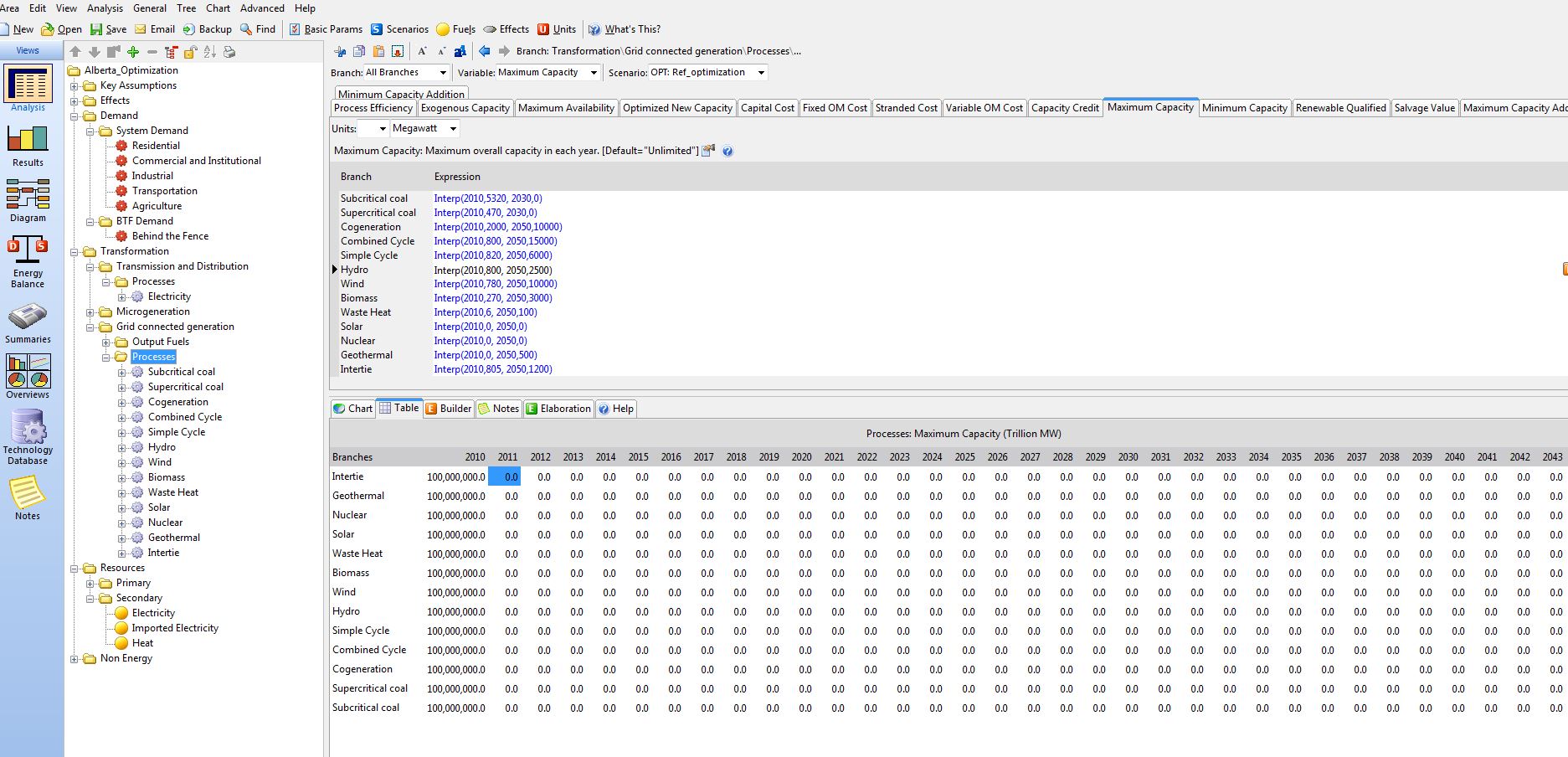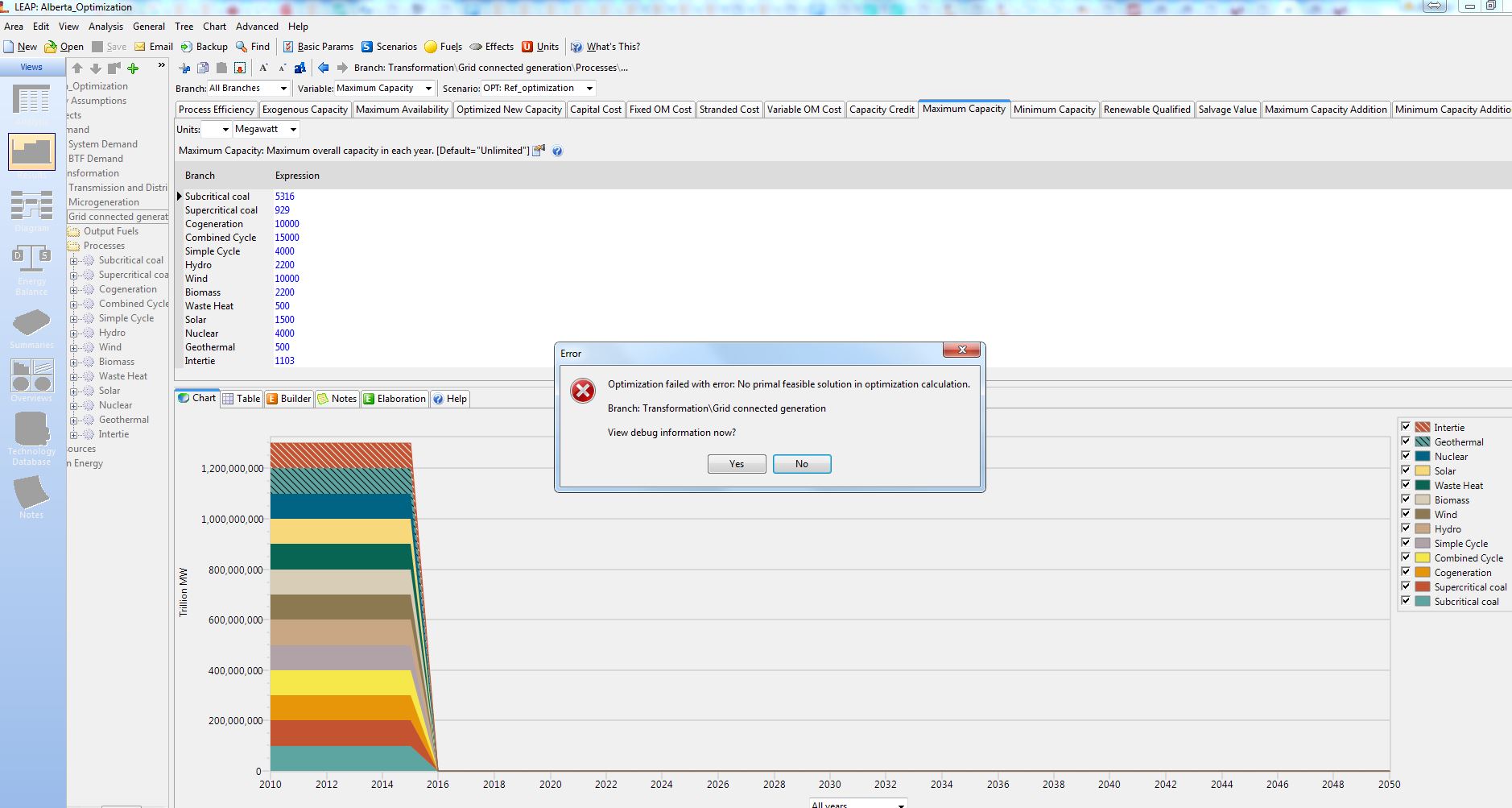Topic: Issue with Maximum Capacity and Maximum Capacity Addition Constraints Subscribe | Previous | Next
Adeoye Moronkeji 12/6/2016
Hello,
I have my long-term generation planning document that specifies long-term generation capacity additions and retirements but I am using the LEAP optimization capability for my model. I have input the constraints for maximum capacity (in MW) and maximum capacity additions (in MW) but it is still reporting the base year capacity in 100,000,000 Trillion MW (same as default values) and subsequent years are reporting zero values instead of my input values. For my exogenous capacity, I have input only the historical data from the base year up to 2015 as I assume that leap would determine the future capacity additions based on the least running cost with the constraints defined for the Maximum Capacity and Maximum Capacity Additions.
Attached is a screenshot from my model for your review.
Thanking you in advance.
Regards,
Ade
1 Like Hi Ade,
LEAP's optimization capability is designed to optimize the future energy mix, which occurs from the First Scenario Year to the End Year (as defined in Basic Params). Therefore, the Maximum Capacity and Maximum Capacity Addition values for any historical years (i.e. the years before the First Scenario Year) are assigned the default value of 1e20 MW and are not included in the optimization calculations.
As for the subsequent years, since the table's units are in Trillion MW and the values for the other years are so small in comparison, they appear as "0". However, if you were to increase the number of decimal places or switch to scientific notation using the buttons to the right of the table, you should see the interpolated values. Note that the interpolated values are calculated based on the value you've assigned for 2010 rather than the LEAP's default value for this year of 1e20 MW.
Hope this helps!
Emily
Emily
Hi Emily,
Thank you for your reply.
I have adjusted the model as suggested but still getting an error message "No primal feasible solution in optimization calculation" whenever I tried to view the results. I observed that the optimization model will give this error whenever I set specific capacity constraints on Max Capacity and Maximum Capacity Addition.
However, it works when both constraints are set to unlimited. The issue with this result is that the capacity addition is only from cogeneration and this seems "unrealistic".
Attached is the screenshot for your review.
Thank you,
Ade
Hi Ade,
I apologize if I confused you in my previous post. To clarify, there was no problem with the expression you had previously written for Maximum Capacity. Sorry if I misled you in any way, and if you require further clarification about this, please let me know.
With regards to your latest post, the "No Primal Feasible Solution" error often occurs when there are conflicting constraints. For example, a conflicting constraint may occur if you enforce a Renewable Target, but the Maximum Capacity assigned to renewable technologies, is too low to achieve the target.
Since you were able to obtain a solution without constraints, try adding the constraints back in one at a time to determine which ones may be responsible for the conflict.
Hopefully this helps!
Thanks,
Emily
Just to quickly add to what Emily has said - in particular, be sure that your Maximum Capacity expression is at least greater than the value you've entered into Exogenous Capacity. Maximum Capacity limits the total of all capacity types including exogenous, so it's likely that you have violated the constraint by entering capacities for each of your processes.
Taylor





